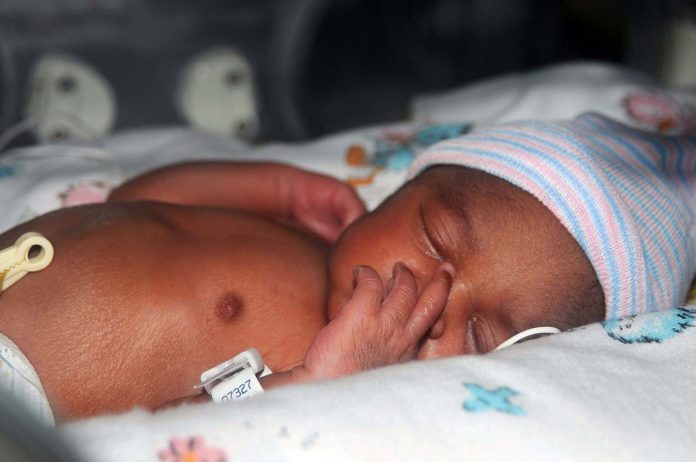The mutations are very rare and not the sole cause of sudden infant death syndrome (SIDS)
Genes that lead to impairment of breathing muscles could be responsible for sudden infant death syndrome (also known as ‘cot death’).
A case-control study in the UK and USA published in The Lancet found genetic mutations that affect respiratory muscles are more common in children who have died of SIDS than in healthy controls.
These mutations are either not found in controls or are very rare, typically found in fewer than five people in every 100000. However, the study found mutations of this kind in four of the 278 children who had died of sudden infant death syndrome, compared to none of the 729 healthy controls.
The authors stress that more research will be needed to understand the link identified, and whether drug treatments might be suitable. They also highlight that this is not the sole cause of sudden infant death syndrome, and other elements also play a part.
Sudden infant death syndrome is the unexpected death of a seemingly healthy child. It is the leading cause of post-neonatal death in high income countries, but deaths are rare, and an individual baby’s risk is low. Typically, it affects children aged between 2-4 months.
The cause of the disorder is unknown, but babies being unable to regulate their breathing is thought to be an important component. It is more common in male babies and those born prematurely. Putting babies to sleep on their back, and not sleeping in the same bed as a parent is known to reduce the risk.
Sudden infant death syndrome is the unexpected death of a seemingly healthy child. It is the leading cause of post-neonatal death in high income countries, but deaths are rare, and an individual baby’s risk is low. Typically, it affects children aged between 2-4 months.
The study looked at the prevalence of mutations in the SCN4A gene which codes for an important cell surface receptor (a skeletal muscle sodium ion channel protein). A receptor is a compound that is present on the cell surface and binds to incoming agents to produce the cellular effects of those agents. The expression of this cell receptor in breathing muscles is low at birth and increases over the first two years of life.
Mutations in this gene are associated with a range of genetic neuromuscular disorders, such as myotonia, periodic paralysis, myopathy, and myasthenic syndrome, and with life-threatening pauses in breathing, and spasms of the vocal cords that make breathing or speaking temporarily difficult.
The study included two cohorts of children of Caucasian European ancestry who had died from sudden infant death syndrome in the UK and USA, including 278 children overall (84 from the UK and 194 from the USA). All deaths were unexplained after thorough post-mortem investigations. These were matched with 729 adults who had no history of cardiovascular, respiratory or neurological disease.
While the study found general mutations in the SCN4A gene in six of the 284 infants who died, and in nine of the 729 controls, mutations that disrupted the cell surface receptor were only found in four of the children who had died of sudden infant death syndrome, and none of the controls.
“Our study is the first to link a genetic cause of weaker breathing muscles with sudden infant death syndrome, and suggests that genes controlling breathing muscle function could be important in this condition. However, more research will be needed to confirm and fully understand this link,” says corresponding author Professor Michael Hanna, MRC Centre for Neuromuscular Diseases, UCL Institute of Neurology and National Hospital for Neurology and Neurosurgery, UK.


